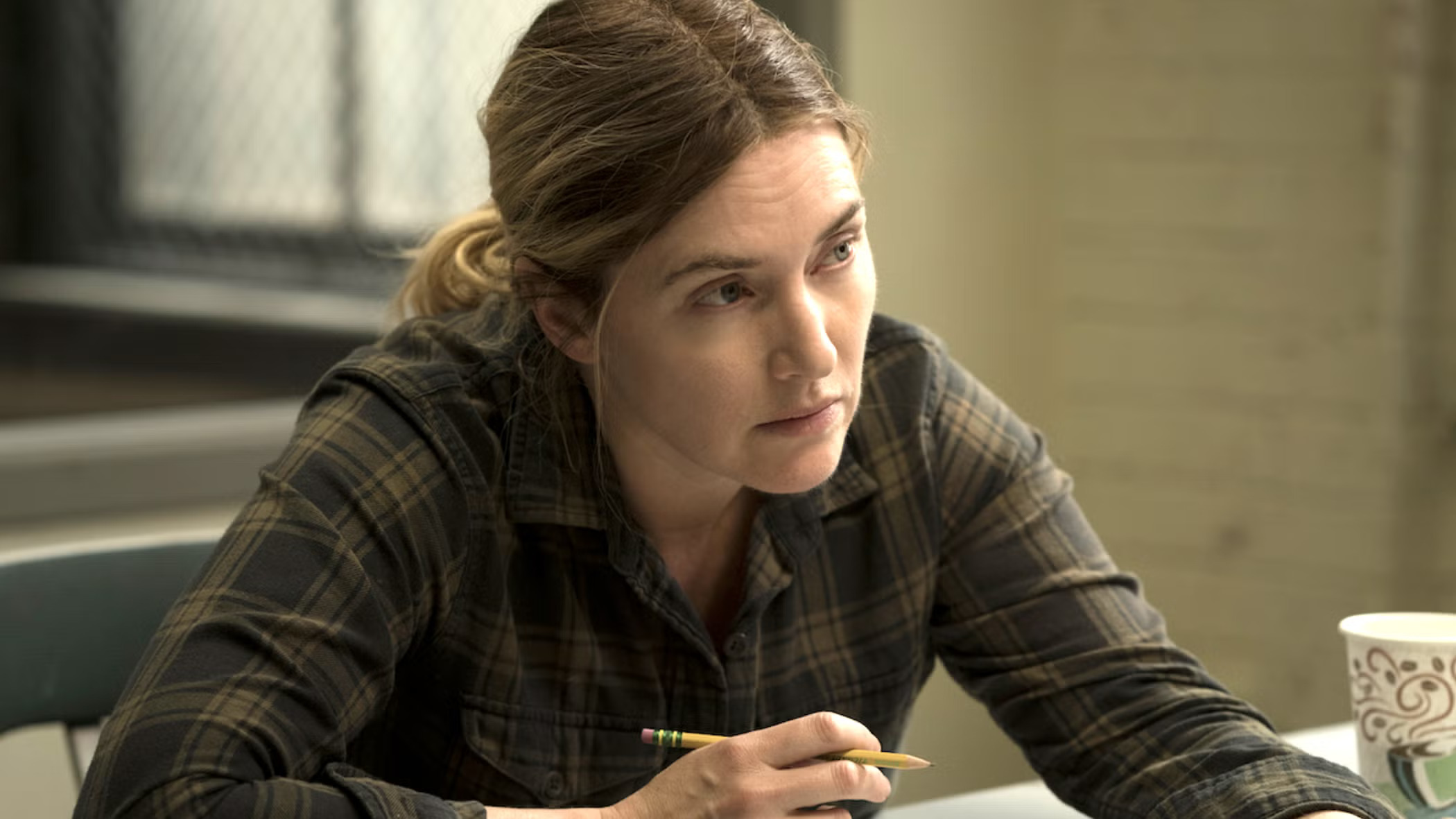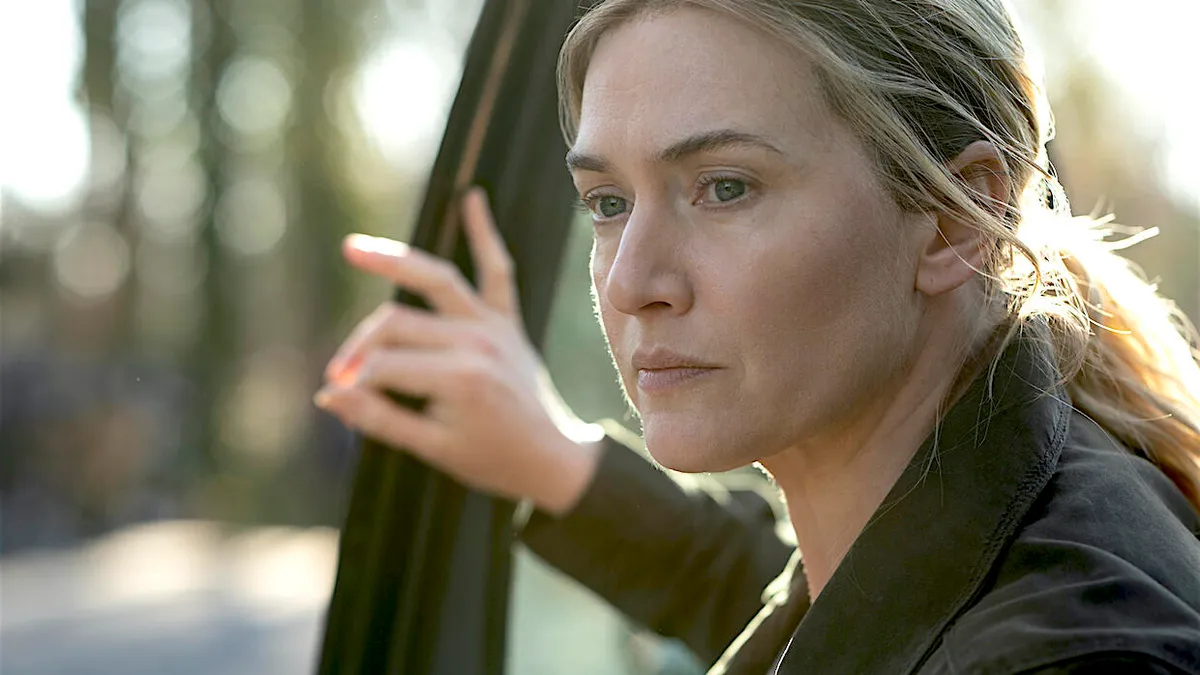After six suspenseful episodes, HBO’s Mare of Easttown concludes its seven-episode run with “Sacrament,” delivering resolution to both its central mystery and the personal struggles of Detective Mare Sheehan (Kate Winslet). The miniseries centers on the murder of Erin McMenamin (Cailee Spaeny), a teenage single mother, and Mare’s investigation into the case.
Beyond the procedural elements, the show intricately explores Mare’s trauma and unresolved grief over the loss of her son, Kevin, to suicide before the series begins. This blend of crime-solving and emotional exploration forms the emotional backbone of the series, offering a compelling portrait of both community and personal struggle.
Set in a small town near Philadelphia, the series’s layered storytelling is complemented by a strong ensemble cast. Mare navigates her professional and personal life amid a community shaken by tragedy. Key figures in the finale include Mare’s best friend Lori Ross (Julianne Nicholson), and her husband John Ross (Joe Tippett), who is also Erin’s uncle.
County detective Colin Zabel (Evan Peters) assists Mare in piecing together the case, while Mare simultaneously contends with a painful divorce and a custody battle for her grandson. The series balances its murder investigation with the pressures of Mare’s life, creating a narrative that is as emotionally rich as it is suspenseful.
The central mystery of Erin’s death reaches its climax in the finale. Initially, John Ross appears to be the prime suspect. When Mare confronts him at the family’s fishing retreat, John confesses to an inappropriate relationship with Erin, revealing that he fathered her child, DJ. While John’s confession suggests culpability, Mare quickly realizes the story doesn’t fully explain Erin’s death. This pivotal moment shifts suspicion, setting the stage for the true revelation of the killer.
Ryan’s Accidental Crime and Family Secrets Reveal the Dark Consequences of Deception
Mare discovers that Ryan Ross, John and Lori’s 13-year-old son, accidentally shot Erin. Ryan had stolen a vintage handgun to scare Erin, hoping to prevent her from seeing John. During a struggle over the weapon, Ryan panicked and fired, killing his cousin. The show highlights subtle clues pointing to Ryan’s involvement, including lingering camera shots emphasizing his presence during key discussions. Ultimately, Ryan’s actions stem from fear that Erin’s revelations would destroy his family, illustrating the unintended consequences of secrets and deception in small-town life.

While John Ross isn’t Erin’s killer, his history of heinous actions compounds the family’s trauma. His incestuous relationship with Erin and the manipulation of his family to conceal it create deep rifts. John’s attempts to shield Ryan and control the narrative around Erin’s death exacerbate tensions, while Lori initially agrees to protect the family’s reputation at the cost of justice. The Ross family’s dysfunction underscores the series’ exploration of how tightly-knit communities sometimes prioritize appearances over moral accountability, with long-lasting repercussions for everyone involved.
Beyond the Ross family, other characters harbor crucial secrets that influence the investigation. Dylan Hinchey (Jack Mulhern), Erin’s ex-boyfriend, and Jess Riley (Ruby Cruz), Erin’s best friend, both possess knowledge of John and Erin’s relationship. While Dylan initially conceals the truth to maintain custody of DJ, Jess hides evidence to protect Erin’s memory. These layers of secrecy reinforce the show’s recurring theme: personal and familial loyalty often conflict with truth and justice, complicating the investigation and heightening narrative tension.
Mare and Lori Rebuild Their Strained Friendship While Confronting Hidden Pain Together
Ryan’s confession and the subsequent revelations fracture Mare’s relationship with Lori. Initially, Lori struggles to forgive Mare for apprehending her son, and their friendship reaches a tense impasse. However, by the series’ end, they reconcile, reflecting Mare’s commitment to confronting difficult truths rather than maintaining a fragile peace. Lori assumes responsibility for raising DJ, and the resolution emphasizes the importance of facing painful realities while acknowledging the innocence and vulnerability of children affected by adult misdeeds.
Parallel to the murder investigation, Mare’s personal journey forms a central narrative thread. Mare’s unresolved grief over Kevin’s suicide profoundly affects her relationships, including her bond with her daughter, Siobhan (Angourie Rice). The series draws connections between Mare’s avoidance of emotional pain and the generational trauma in her family, revealing how her father’s depression and her mother’s responses shaped her coping mechanisms.
In the finale, Mare takes meaningful steps toward healing: she attends therapy, reconciles with Lori, and confronts her grief directly by entering the attic where Kevin died. This moment symbolizes her commitment to emotional repair and breaking destructive cycles.
Mare of Easttown concludes by highlighting the consequences of buried secrets and the importance of confronting hidden truths. The series demonstrates that healing, both individual and communal, requires acknowledgment of trauma and wrongdoing. Critics and audiences alike praised the miniseries for its storytelling, character depth, and Winslet’s performance, achieving a 95% “Certified Fresh” rating and a 94% audience score. While a second season is not confirmed, discussions suggest any continuation could involve a time jump, though the story stands effectively as a self-contained exploration of crime, grief, and human resilience.



